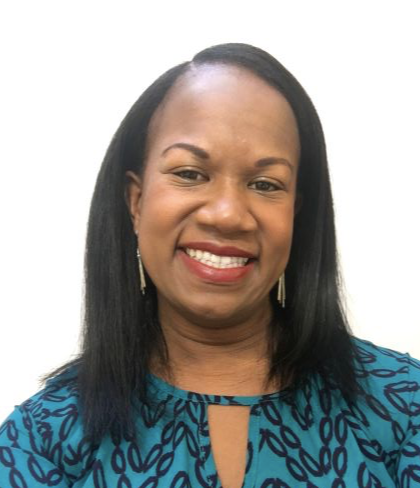Amerika Sanchez is a principal at Five Keys Charter Schools and Programs. The vision of Five Keys is to define the way people think about the role of education in restoring communities. The organization uses social and restorative justice principles to provide traditionally underserved communities the opportunity to restart their education with the focus of the five keys: education, employment, recovery, family and community. There she supervises this educational program at various community sites throughout the City of San Francisco.
Amerika’s school experiences were positive enough that she decided to be a school teacher by the time she reached twelve years old. Besides being drawn to historical content from the start of her school years, the numerous positive school experiences with teachers further confirmed her career projection. Her quest for authentic learning experiences for students has led her to various educational experiences outside of the classroom. Reflecting on her journey, Amerika says, “It just became a passion for me to follow the professional educational career ladder.”
Amerika succeeded scholastically to the degree she skipped community college and went from high school to a private university. While at Occidental College, Amerika was exposed to viewing her academic activities through a social justice lens. Amerika became convinced during her years at Occidental that education can be transformative to people and entire communities. She did teach in LAUSD public schools and private schools from K-12th grade for her first eight years in education as a young professional. Amerika then taught incarcerated adults U.S. History and American literature based on California State Standards in two of San Francisco County’s correctional facilities. Those adults earned credits towards their high school diploma.
Recently, San Francisco Mayor London Breed appointed Amerika as a commissioner to the Southeast Community Facility Commission (SECF). The (SECF) commission is a seven-member panel, mayoral-appointed leadership body that provides direction to the San Francisco Public Utilities Commission (SFPUC) and the San Francisco Board of Supervisors regarding strategic, financial and capital improvement plans, in addition to programming and operations for the SECF and adjacent Greenhouses at 1150 Phelps Street. The Greenhouses were constructed to mitigate the adverse social and environmental impacts of the Southeast Treatment Plant expansion projects in the 1970s and 1980s. Those facilities are owned by the City of San Francisco. However, they are operated and maintained by the SFPUC for the public benefit of the Bayview-Hunters Point community.
Bayview-Hunters Point (also known as The Bayview or Hunters Point) is a major neighborhood in the southeastern corner of San Francisco. Bayview-Hunters Point has been labeled as San Francisco’s ‘Most Isolated Neighborhood’. The predominately African-American, and other racial minorities neighborhood, is a prime example of economic marginalization. High levels of poverty, disease, and crime can be connected directly to high levels of industrial pollution, the abandonment of industry, and the loss of a working infrastructure. The toxic waste pollution has been cause for elevated rates of asthma and other respiratory diseases in the area.
Commissioner Sanchez is a Bayview resident and homeowner. In essence, it brings Amerika great pride to be able to invest in the community she has worked in, for more than four years. She oversees educational programming for a diverse range of adult learners including transitional aged youth (TAY) in locations such as SECF, Bayview YMCA, the Village, and Hope SF sites. As a (SECF) commissioner, Amerika is actively involved promoting and advocating for special services and the improvement of the general economic, health, safety and welfare of the residents in San Francisco’s southeast neighborhoods.
Amerika reflected on where this commissioner role has taken her as a teacher. “As a teacher involved in advocating for rights of adult students who made mistakes on their scholastic path, I have entered a political territory. And I feel comfortable in that social justice role. It’s almost as if I’ve been preparing for it all my life,” she said.
Adriana Maestas
She has worked in the non-profit sector, in the K-12 system, and in higher education in various capacities. When she's not writing stories or working on media projects, Adriana trains instructors to teach online at the University of California, Irvine.
She holds a bachelor’s degree in political science from the University of California, Irvine and a master’s degree in public policy from Claremont Graduate University.

